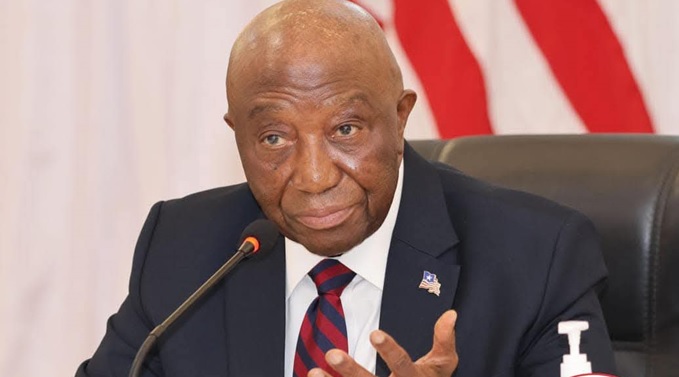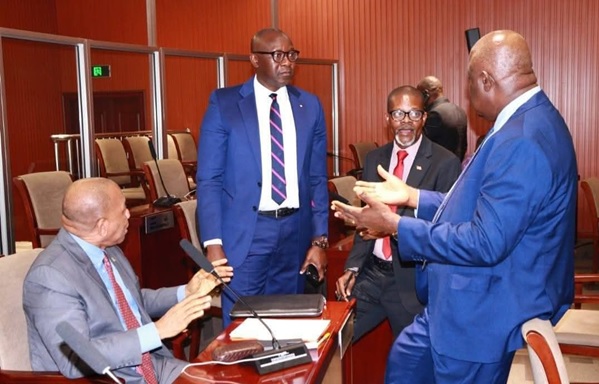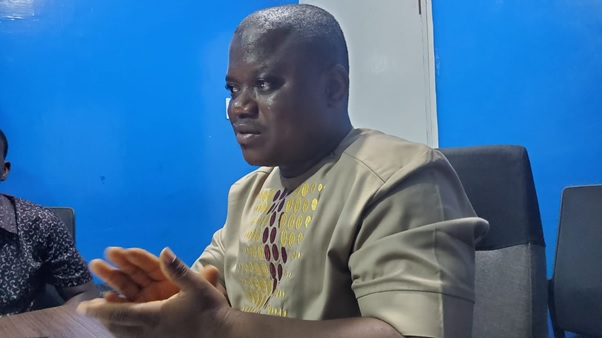MONROVIA – The Liberian government has introduced an ambitious set of fiscal reforms designed to reduce the benefits of government officials across state-owned enterprises (SOEs) and ministries. This action follows rising public concern over the vast allowances that were often considered excessive, particularly in the form of fuel and scratch cards, which had persisted under the previous administration of the Coalition for Democratic Change (CDC).
In an effort to curb these unchecked spending practices, the administration of President Joseph Boakai has embarked on a bold strategy to tighten fiscal controls and ensure public funds are more effectively utilized. This shift comes after revelations that, despite attempts at “harmonization” to regulate salaries during the CDC administration, many SOEs had circumvented salary reductions by inflating operational allowances for high-ranking officials. These inflated benefits, including fuel allocations, scratch cards, and vehicle maintenance costs, allowed officials to maintain high compensation under the guise of legitimate expenses.
Public outrage intensified when it was uncovered that some government officials, including heads of ministries and SOEs, were receiving up to 800 gallons of fuel per month. The situation revealed the inadequacy of previous measures to truly address the financial excesses, prompting the current administration to act decisively.
Under the new fiscal policy, which will be implemented in the 2025 national budget, the government has instituted substantial cuts in allowances for officials at all levels. The most significant reduction concerns fuel allocations, which will now be capped at 150 gallons per month for heads of entities. This marks a dramatic decrease from the previous 800-gallon cap. Additionally, scratch card allowances for these top officials will be reduced to $200 per month, a sharp cut from previous amounts.
For deputy heads of entities, fuel allowances will be limited to 125 gallons per month, with scratch card benefits set at $175. Meanwhile, principal assistants will be allotted a maximum of 100 gallons of fuel and $150 in scratch card allowances. These reductions represent a broader push to realign public sector compensation with the country’s economic realities, reflecting the government’s commitment to fiscal discipline.
The government has also introduced a new salary ceiling for heads of entities. Under the new rules, no official in this position will be allowed to earn more than $7,000 per month, a measure designed to prevent the continued concentration of high salaries in a country struggling with financial constraints.
These sweeping reforms not only address public concerns but also draw a clear line between the policies of the current administration and those of the previous government. Although the excessive allowances were widely criticized, the Boakai administration has clarified that these benefits were inherited from the former CDC-led government, which failed to regulate them effectively.
The new fiscal measures are being seen as a significant step toward achieving greater accountability and transparency in public spending. The Unity Party-led government aims to establish a more sustainable model of governance, where public resources are spent wisely and in line with national priorities.
Officials have stressed that this reform marks the beginning of a broader effort to re-establish financial prudence in government institutions and SOEs. With these measures in place, the government hopes to prevent the misuse of public funds while also setting a standard for future fiscal management.
Moving forward, the expectation is that all government institutions will comply with the new guidelines, which should help curb the growing public disillusionment with government spending. By enacting these fiscal reforms, the Boakai administration is signaling its commitment to a more responsible approach to governance, ensuring that public funds are no longer squandered on excessive allowances that serve only to benefit a small number of individuals at the expense of the broader population.







